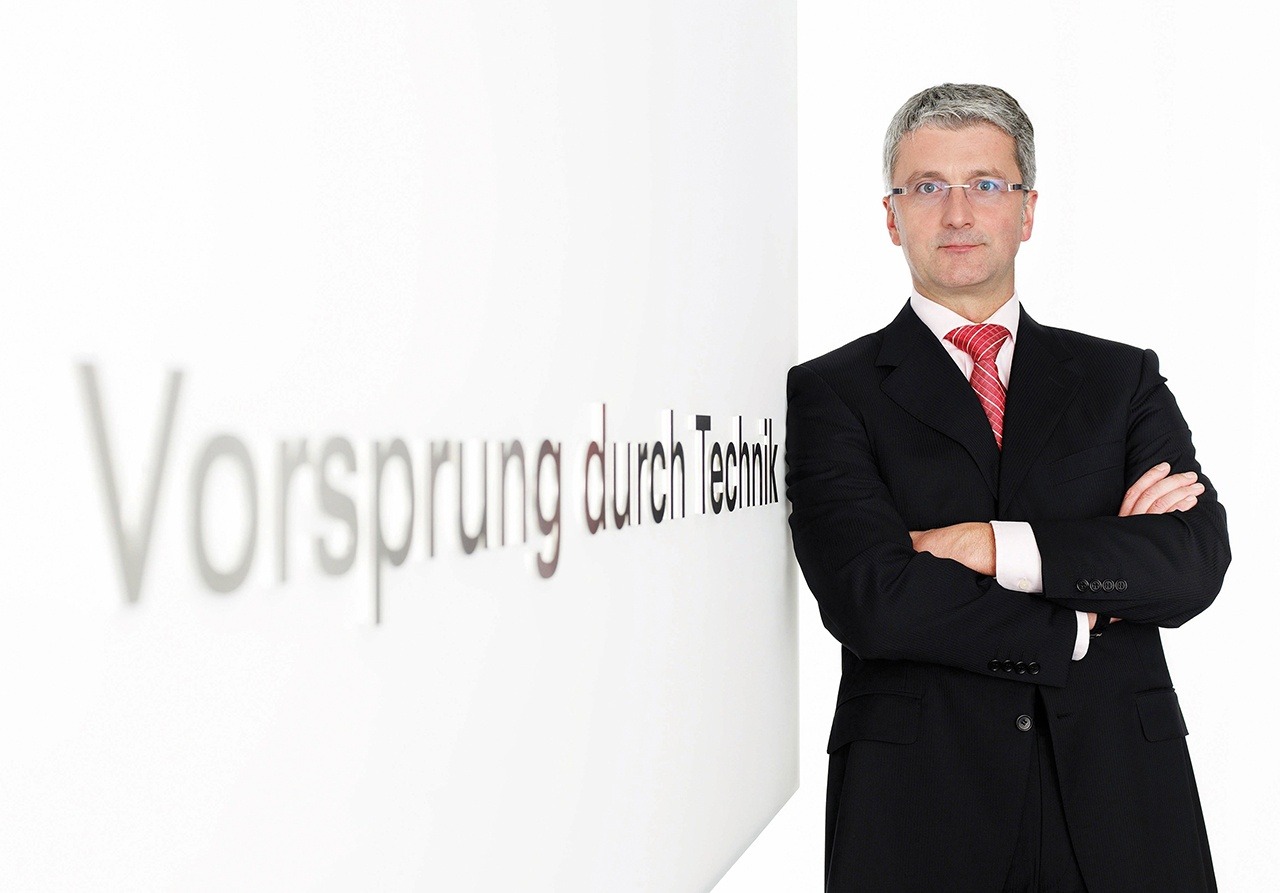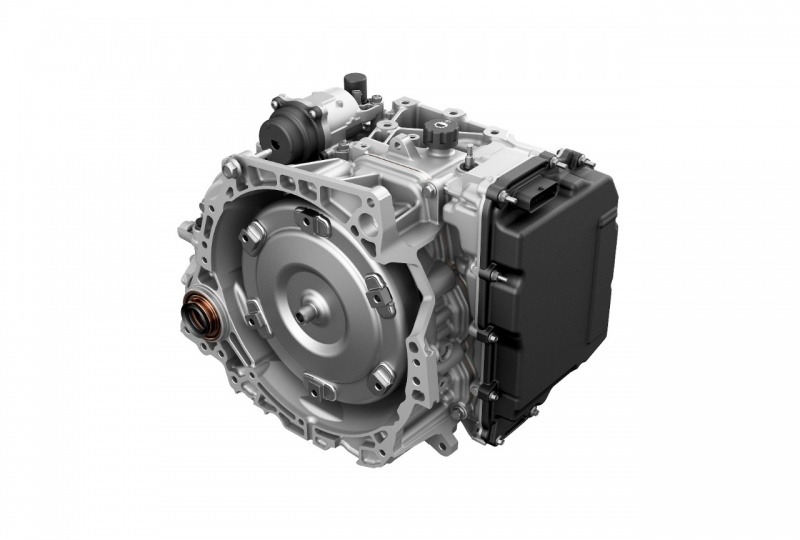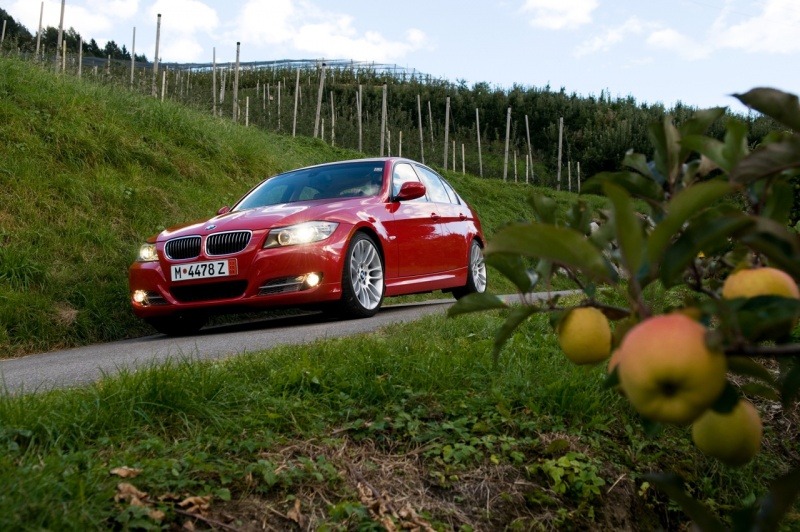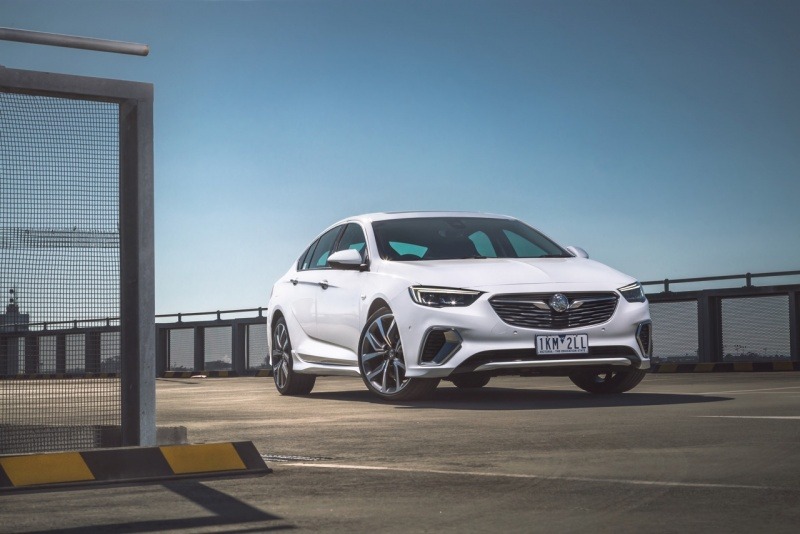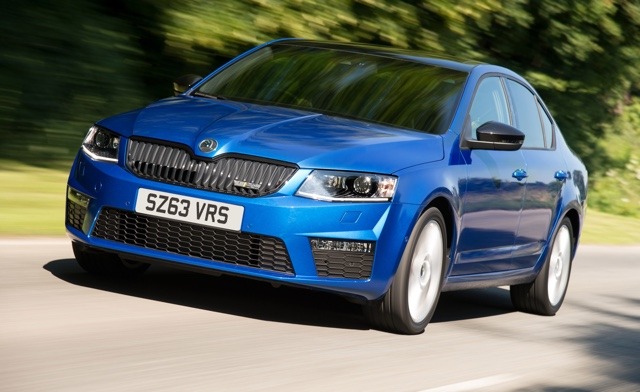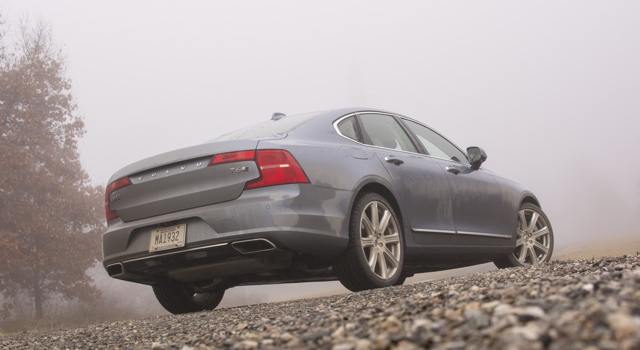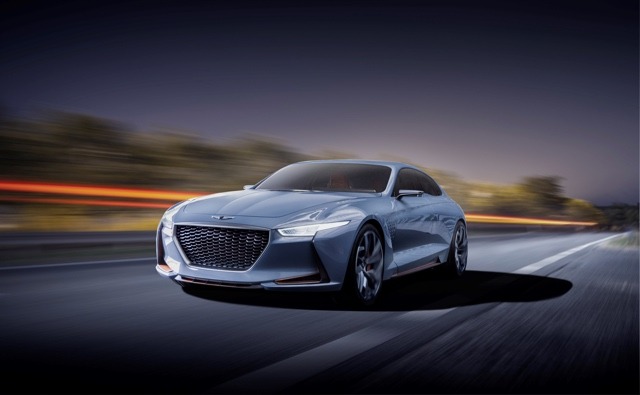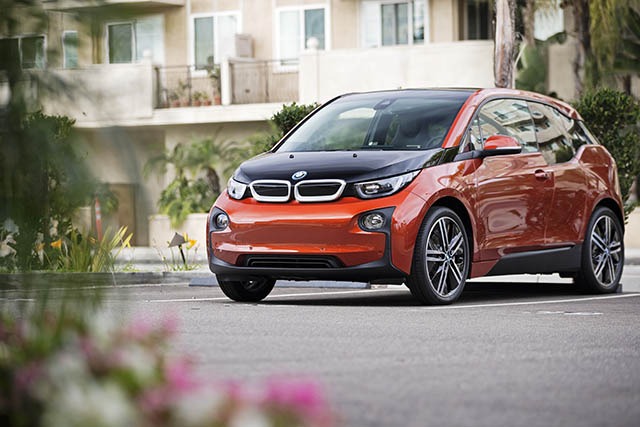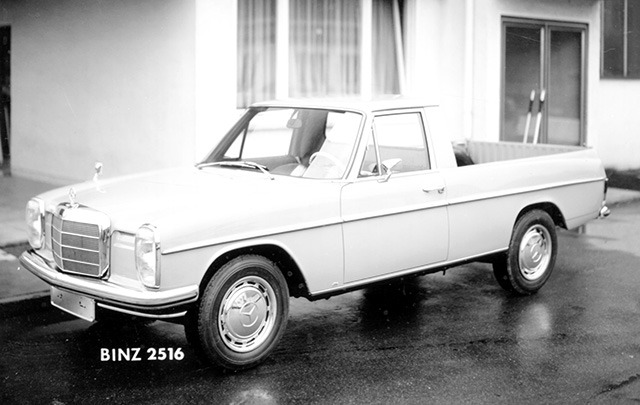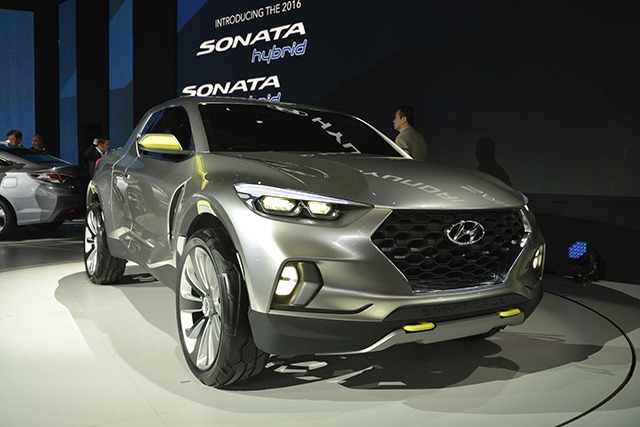Search the Community
Showing results for tags 'Decision'.
-
Today, the supervisory board of the Volkswagen Group was planning to make a decision as to the future of Audi CEO Rupert Stadler. Since June, Stadler has been in jail over concerns of evidence tampering with the diesel emission scandal. But a decision could not be reached and the decision has been postponed. Sources tell Automotive News that representatives for Stadler and Volkswagen's board were unable to to negotiate a solution that would see Stadler step down as Audi CEO. No reason was given as to why an agreement could not be reached. Bram Schot, Audi sales executive has been acting as interim CEO. Source: Automotive News (Subscription Required) View full article
-
Today, the supervisory board of the Volkswagen Group was planning to make a decision as to the future of Audi CEO Rupert Stadler. Since June, Stadler has been in jail over concerns of evidence tampering with the diesel emission scandal. But a decision could not be reached and the decision has been postponed. Sources tell Automotive News that representatives for Stadler and Volkswagen's board were unable to to negotiate a solution that would see Stadler step down as Audi CEO. No reason was given as to why an agreement could not be reached. Bram Schot, Audi sales executive has been acting as interim CEO. Source: Automotive News (Subscription Required)
-
In April of 2013, Ford and General Motors announced they would be working together on developing new nine and ten-speed automatic transmissions. The nine-speed automatic would be for front-wheel drive models, while rear-drive models got the ten-speed. Already, a number of Ford and GM vehicles are using the ten-speed. But GM will be the only one using the nine-speed. Automotive News reports that Ford is electing to use a new series of eight-speed automatic transmission on their vehicles. The company said the new nine-speed didn't provide enough of an improvement in fuel economy to justify the added cost and weight. According to a source, Ford made this decision before GM began to use this transmission on their production models. "Typically, if anyone gave me a transmission that didn't require much work, outside of tuning it for a specific vehicle, I would take it and run. It's a lot of design work after the fact to come up with their own flavor. It shows there might be some different schools of thought in terms of transmission efficiency," said Dave Sullivan, an analyst with AutoPacific Inc. While GM claims the nine-speed brings “smoother shifts” and a better driving experience, it hasn't brought any real gains to fuel economy. The 2017 Chevrolet Malibu 2.0T only saw an increase of one mpg on the highway when compared to the 2016 model with a six-speed automatic (33 vs. 32). The 2019 Buick Envision 2.0T saw its highway fuel economy drop by one when equipped with the nine-speed auto (25 vs. 26). It should be noted that one of the eight-speed transmissions Ford is using is based on the new nine-speed, minus a gear. Source: Automotive News (Subscription Required)
-
In April of 2013, Ford and General Motors announced they would be working together on developing new nine and ten-speed automatic transmissions. The nine-speed automatic would be for front-wheel drive models, while rear-drive models got the ten-speed. Already, a number of Ford and GM vehicles are using the ten-speed. But GM will be the only one using the nine-speed. Automotive News reports that Ford is electing to use a new series of eight-speed automatic transmission on their vehicles. The company said the new nine-speed didn't provide enough of an improvement in fuel economy to justify the added cost and weight. According to a source, Ford made this decision before GM began to use this transmission on their production models. "Typically, if anyone gave me a transmission that didn't require much work, outside of tuning it for a specific vehicle, I would take it and run. It's a lot of design work after the fact to come up with their own flavor. It shows there might be some different schools of thought in terms of transmission efficiency," said Dave Sullivan, an analyst with AutoPacific Inc. While GM claims the nine-speed brings “smoother shifts” and a better driving experience, it hasn't brought any real gains to fuel economy. The 2017 Chevrolet Malibu 2.0T only saw an increase of one mpg on the highway when compared to the 2016 model with a six-speed automatic (33 vs. 32). The 2019 Buick Envision 2.0T saw its highway fuel economy drop by one when equipped with the nine-speed auto (25 vs. 26). It should be noted that one of the eight-speed transmissions Ford is using is based on the new nine-speed, minus a gear. Source: Automotive News (Subscription Required) View full article
-

Germany's High Court Rules Cities Can Ban Older Diesels
William Maley posted an article in Automotive Industry
Germany's highest court, the Federal Administrative Court ruled today that cities can ban older diesel vehicles to help cut pollution. According to Reuters, the case was brought to the Federal Administrative Court after local courts ordered the Düsseldorf and Stuttgart governments to ban older diesel vehicles. The states disagreed with this decision and appealed it to the highest court. Originally, the Federal Administrative Court was expected to rule on the case last week, but it was pushed back. In the ruling, the court said the two cities should introduce the bans gradually and exemptions can be made for certain types of vehicles like ambulances. “It will not be easy to implement,” said Fritz Kuhn, mayor of Stuttgart during a press conference. Kuhn added that it would likely take six months for the regional government to agree on a plan. The decision was welcomed by environmental groups. “It’s a great day for clean air in Germany,” said Jürgen Resch of the environmental group DUH. But a number of politicians and business lobbies disagree with the decision, saying it could deprive a number of drivers across the country, many who might not be able to replace them. “The court has not issued any driving bans but created clarity about the law. Driving bans can be avoided, and my goal is and will remain that they do not come into force,” said Germany's environment minister, Barbara Hendricks. Hendricks told Reuters that she hopes cities are able to find other ways to improve air quality. One example she brought up is to retrofit exhaust treatment systems to older diesel vehicles. As to who would pay for it, Hendricks said it should be the automakers since they sold the vehicles in the first place. German Chancellor Angela Merkel stressed the bans were localized and wouldn't affect most drivers in the country. The ban could cause German automakers a number of headaches as it would likely cause sales of diesel vehicles to drop even further, along with decreasing the resale value of them. Source: Reuters, (2), The Guardian -
Germany's highest court, the Federal Administrative Court ruled today that cities can ban older diesel vehicles to help cut pollution. According to Reuters, the case was brought to the Federal Administrative Court after local courts ordered the Düsseldorf and Stuttgart governments to ban older diesel vehicles. The states disagreed with this decision and appealed it to the highest court. Originally, the Federal Administrative Court was expected to rule on the case last week, but it was pushed back. In the ruling, the court said the two cities should introduce the bans gradually and exemptions can be made for certain types of vehicles like ambulances. “It will not be easy to implement,” said Fritz Kuhn, mayor of Stuttgart during a press conference. Kuhn added that it would likely take six months for the regional government to agree on a plan. The decision was welcomed by environmental groups. “It’s a great day for clean air in Germany,” said Jürgen Resch of the environmental group DUH. But a number of politicians and business lobbies disagree with the decision, saying it could deprive a number of drivers across the country, many who might not be able to replace them. “The court has not issued any driving bans but created clarity about the law. Driving bans can be avoided, and my goal is and will remain that they do not come into force,” said Germany's environment minister, Barbara Hendricks. Hendricks told Reuters that she hopes cities are able to find other ways to improve air quality. One example she brought up is to retrofit exhaust treatment systems to older diesel vehicles. As to who would pay for it, Hendricks said it should be the automakers since they sold the vehicles in the first place. German Chancellor Angela Merkel stressed the bans were localized and wouldn't affect most drivers in the country. The ban could cause German automakers a number of headaches as it would likely cause sales of diesel vehicles to drop even further, along with decreasing the resale value of them. Source: Reuters, (2), The Guardian View full article
-
It was a sad day when Holden announced that the next Commodore, the ZB, would switch from its rear-drive roots that it had since it was first launched back in the late 70's to front-wheel drive. We have been wondering if this decision was made back in 2013 when the news first came out or earlier. According to a report from Australian outlet Motoring, discussions about possibly using the next-generation Insignia date back to 2010 and the final decision would follow a year later. “It was really a case of how many architectures could General Motors afford to develop, and how many different people wanted to use Zeta versus something like this (E2)," said Brett Vivian, Holden's director of engineering. “I think we took some strategic decisions back then to do fewer architectures and put more into them and make them deeper, stronger architectures and spend our resources that way.” A key reason Holden made the switch to the FWD Commodore comes down to the declining sales of the big RWD sedans. “I think there is a place for V8s and big cars, but it is increasingly becoming a smaller and smaller slice of the pie and at the end of the day we have to pay our bills and to do that we need volume to do that," Vivian explained. “It just wasn’t the place to place your bets and invest your money.” Vivian also dropped an interesting tidbit about the ZB Commodore. There was the possibility of a long-wheelbase version that could serve as the replacement for the Caprice/Statesman. But when the decision came down to end Australian production in late 2013, this idea was scrapped. Source: Motoring.com.au
- 5 comments
-
It was a sad day when Holden announced that the next Commodore, the ZB, would switch from its rear-drive roots that it had since it was first launched back in the late 70's to front-wheel drive. We have been wondering if this decision was made back in 2013 when the news first came out or earlier. According to a report from Australian outlet Motoring, discussions about possibly using the next-generation Insignia date back to 2010 and the final decision would follow a year later. “It was really a case of how many architectures could General Motors afford to develop, and how many different people wanted to use Zeta versus something like this (E2)," said Brett Vivian, Holden's director of engineering. “I think we took some strategic decisions back then to do fewer architectures and put more into them and make them deeper, stronger architectures and spend our resources that way.” A key reason Holden made the switch to the FWD Commodore comes down to the declining sales of the big RWD sedans. “I think there is a place for V8s and big cars, but it is increasingly becoming a smaller and smaller slice of the pie and at the end of the day we have to pay our bills and to do that we need volume to do that," Vivian explained. “It just wasn’t the place to place your bets and invest your money.” Vivian also dropped an interesting tidbit about the ZB Commodore. There was the possibility of a long-wheelbase version that could serve as the replacement for the Caprice/Statesman. But when the decision came down to end Australian production in late 2013, this idea was scrapped. Source: Motoring.com.au View full article
-
Skoda has been cagey with saying when a possible decision of selling vehicles in U.S. will come. Ask anyone at the Czech automaker and they'll say there isn't a timeframe. It seems now there is a timeframe. German business daily Handelsblatt recently talked with Skoda CEO Bernhard Maier. During their talk, Maier revealed a decision for the U.S. will happen sometime next year. “In the course of the coming year, we want to decide on the question of North America,” said Maier. “When we talk about our plans until 2025, then you cannot leave out one of the most important car markets in the world. Therefore, we examine under what conditions and with what cars the entrance to the U.S. market would be possible.” Skoda wants to be in 120 global markets by 2025. At the moment, Skoda is in 102 markets. This will grow next year as the brand will enter Iran, South Korea, and Singapore. Source: Handelsblatt (Global Edition)
-

Volvo CEO Admits He Wasn't Fully On Board With Four-Cylinder Plan
William Maley posted an article in Volvo
When Volvo announced that all of their vehicles would be powered by only four-cylinder, it caught a lot of people off guard, including Volvo Cars CEO Hakan Samuelsson. Speaking with various media at the Geneva Motor Show, Samuelsson revealed that he wasn't sold on this idea. But since then, he has been convinced. “Two years ago you could ask me that, and probably I would have had to answer a different way. But today, I’m absolutely convinced," said Samuelsson. “The reaction of that decision has been very positive. Even in the US – the XC90 was even truck of the year in the US, a big SUV with a four-cylinder engine: that’s a good indication that we took the right decision." Volvo explained back in 2011 the move to only using four-cylinders would help with fuel economy and future plans for hybrid variants. Source: CarAdvice Pic Credit: William Maley for Cheers & Gears- 12 comments
-
- decision
- four-cylinder
-
(and 3 more)
Tagged with:
-
When Volvo announced that all of their vehicles would be powered by only four-cylinder, it caught a lot of people off guard, including Volvo Cars CEO Hakan Samuelsson. Speaking with various media at the Geneva Motor Show, Samuelsson revealed that he wasn't sold on this idea. But since then, he has been convinced. “Two years ago you could ask me that, and probably I would have had to answer a different way. But today, I’m absolutely convinced," said Samuelsson. “The reaction of that decision has been very positive. Even in the US – the XC90 was even truck of the year in the US, a big SUV with a four-cylinder engine: that’s a good indication that we took the right decision." Volvo explained back in 2011 the move to only using four-cylinders would help with fuel economy and future plans for hybrid variants. Source: CarAdvice Pic Credit: William Maley for Cheers & Gears View full article
- 12 replies
-
- decision
- four-cylinder
-
(and 3 more)
Tagged with:
-
The Hyundai Santa Cruz has been a source of wonder - will they put into production or not? For the longest time, Hyundai's U.S. office say they wanted to do it, but it was the home office that had to make the final call. It seems we have a final decision. “We have made the decision. We have not made the announcement,” said Dave Zuchowski, president and CEO of Hyundai Motor America to Motor Trend. That decision is a yes. Zuchowski said they are busy at work on a production version. The Santa Cruz's design went in for a review earlier this month and they are close to finalizing it. The production model is expected to use the same platform as the Tucson and could use either a gas or diesel engine. Hyundai is working on a new four-cylinder diesel for the Genesis brand in Europe. Zuchowski said the diesel is possible for both the Santa Cruze and Santa Fe. But can Hyundai succeed with a car-based pickup? Subaru failed with the Baja from mid-2000s, while Honda is giving it another try with the second-generation Ridgeline. Zuchowski believes they can if they execute it and price it right. Motor Trend says to expect the Santa Cruz in 2018 as a 2019 model. Source: Motor Trend
- 4 comments
-
The Hyundai Santa Cruz has been a source of wonder - will they put into production or not? For the longest time, Hyundai's U.S. office say they wanted to do it, but it was the home office that had to make the final call. It seems we have a final decision. “We have made the decision. We have not made the announcement,” said Dave Zuchowski, president and CEO of Hyundai Motor America to Motor Trend. That decision is a yes. Zuchowski said they are busy at work on a production version. The Santa Cruz's design went in for a review earlier this month and they are close to finalizing it. The production model is expected to use the same platform as the Tucson and could use either a gas or diesel engine. Hyundai is working on a new four-cylinder diesel for the Genesis brand in Europe. Zuchowski said the diesel is possible for both the Santa Cruze and Santa Fe. But can Hyundai succeed with a car-based pickup? Subaru failed with the Baja from mid-2000s, while Honda is giving it another try with the second-generation Ridgeline. Zuchowski believes they can if they execute it and price it right. Motor Trend says to expect the Santa Cruz in 2018 as a 2019 model. Source: Motor Trend View full article
-
With Hyundai and Kia working on their own performance lineups, it should come as a no surprise that Genesis is planning a line of high-performance vehicles. But Car and Driver reports that Genesis isn't sure what model should get the treatment first. “On the Genesis lineup, the whole thing is still in discussion. Before [the lineup is] fixed, we’re not making any decisions on performance cars—the lineup needs to be clear, and it’s still moving and fluid,” said Albert Biermann, Hyundai-Kia’s head of performance development. One type of vehicle that has been thrown out are SUVs. Biermann explained that stricter fuel economy and emission standards have put the question as to whether these high-performance vehicles will stick around in the coming years. Also, he doesn't see a market for these vehicles. Not helping matters is trying to figure out what would power these high-performance models: a internal combustion engine or hybrid powertrain. “The road map for the next three or four years is clear, but at some point you have to make sure that, with future mobility and all the emissions targets, that you have the technology out there. A lot of discussion is going on about the timing of switching away from pure internal combustion to hybrid or plug-in hybrid. That’s the same for the high-performance applications,” said Biermann. Car and Driver doesn't have a guess as to what could be the first Genesis vehicle to get amped up, but we bet the upcoming G70 is a safe possibility. Source: Car and Driver View full article
-
With Hyundai and Kia working on their own performance lineups, it should come as a no surprise that Genesis is planning a line of high-performance vehicles. But Car and Driver reports that Genesis isn't sure what model should get the treatment first. “On the Genesis lineup, the whole thing is still in discussion. Before [the lineup is] fixed, we’re not making any decisions on performance cars—the lineup needs to be clear, and it’s still moving and fluid,” said Albert Biermann, Hyundai-Kia’s head of performance development. One type of vehicle that has been thrown out are SUVs. Biermann explained that stricter fuel economy and emission standards have put the question as to whether these high-performance vehicles will stick around in the coming years. Also, he doesn't see a market for these vehicles. Not helping matters is trying to figure out what would power these high-performance models: a internal combustion engine or hybrid powertrain. “The road map for the next three or four years is clear, but at some point you have to make sure that, with future mobility and all the emissions targets, that you have the technology out there. A lot of discussion is going on about the timing of switching away from pure internal combustion to hybrid or plug-in hybrid. That’s the same for the high-performance applications,” said Biermann. Car and Driver doesn't have a guess as to what could be the first Genesis vehicle to get amped up, but we bet the upcoming G70 is a safe possibility. Source: Car and Driver
- 3 comments
-
Skoda has been cagey with saying when a possible decision of selling vehicles in U.S. will come. Ask anyone at the Czech automaker and they'll say there isn't a timeframe. It seems now there is a timeframe. German business daily Handelsblatt recently talked with Skoda CEO Bernhard Maier. During their talk, Maier revealed a decision for the U.S. will happen sometime next year. “In the course of the coming year, we want to decide on the question of North America,” said Maier. “When we talk about our plans until 2025, then you cannot leave out one of the most important car markets in the world. Therefore, we examine under what conditions and with what cars the entrance to the U.S. market would be possible.” Skoda wants to be in 120 global markets by 2025. At the moment, Skoda is in 102 markets. This will grow next year as the brand will enter Iran, South Korea, and Singapore. Source: Handelsblatt (Global Edition) View full article
-
BMW is coming close to making a decision on a possible third member of their i family. Autocar says there are two proposals for the next model which is known as the i5. First is an extended version of the i3 and the second is a sedan that will directly compete with Tesla's upcoming Model 3. Ian Robertson, BMW's board member who oversees sales and marketing says the company is in “the final stages” of which proposal to go with. “You will see more i products, and we are in the final stages of deciding what the next car will be and when you’ll see it,” said Robertson. It is expected that BMW will show the i5 next year during the company's centenary celebrations. Source: Autocar View full article
-
BMW is coming close to making a decision on a possible third member of their i family. Autocar says there are two proposals for the next model which is known as the i5. First is an extended version of the i3 and the second is a sedan that will directly compete with Tesla's upcoming Model 3. Ian Robertson, BMW's board member who oversees sales and marketing says the company is in “the final stages” of which proposal to go with. “You will see more i products, and we are in the final stages of deciding what the next car will be and when you’ll see it,” said Robertson. It is expected that BMW will show the i5 next year during the company's centenary celebrations. Source: Autocar
-

Fate of Mercedes-Benz Truck For U.S. To Be Decided Next Year
William Maley posted an article in Mercedes Benz
Earlier this year, we reported that Mercedes-Benz was going forward on a midsize truck for certain markets towards the end of decade. We also reported that the U.S. arm wants the truck. "We said to Stuttgart, 'We are open, and let us assess the market.' If that leads to us saying 'green light,' then we will bring it," said Steve Cannon, CEO of Mercedes-Benz USA. So has a decision been made for the U.S. getting a midsize truck from Mercedes? According to Cannon, that decision has been pushed back by eight to ten months. The decision was expected to come down at the end of this year. "The product is still very fluid. We've got time to make this decision, so we're not hurrying with it. We want to make sure the product fits this market's needs. If it doesn't, we're not bringing it -- I can tell you that," said Cannon to Automotive News at the Frankfurt Motor Show. There wasn't a reason given as to why the decision was pushed back. Source: Automotive News (Subscription Required)- 18 comments
-
Earlier this year, we reported that Mercedes-Benz was going forward on a midsize truck for certain markets towards the end of decade. We also reported that the U.S. arm wants the truck. "We said to Stuttgart, 'We are open, and let us assess the market.' If that leads to us saying 'green light,' then we will bring it," said Steve Cannon, CEO of Mercedes-Benz USA. So has a decision been made for the U.S. getting a midsize truck from Mercedes? According to Cannon, that decision has been pushed back by eight to ten months. The decision was expected to come down at the end of this year. "The product is still very fluid. We've got time to make this decision, so we're not hurrying with it. We want to make sure the product fits this market's needs. If it doesn't, we're not bringing it -- I can tell you that," said Cannon to Automotive News at the Frankfurt Motor Show. There wasn't a reason given as to why the decision was pushed back. Source: Automotive News (Subscription Required) View full article
- 18 replies
-
Back in March, we reported on that Hyundai was putting the Santa Cruz Concept under the microscope to decide whether or not to make it into a production model. Now Motor Trend reports that a decision could be reached in November at the automaker's global product review. “We feel pretty good about it,” said Dave Zuchowski , Hyundai Motor America CEO. “Our intention at Detroit was to prove to Korea that we have to build [the Santa Cruz]. The reaction has been overwhelmingly positive, and that has been fed back to Korea.” How confident is Zuchowski getting a yes to the Santa Cruz? Basic engineering work on this model has already begun. Source: Motor Trend View full article
-
Back in March, we reported on that Hyundai was putting the Santa Cruz Concept under the microscope to decide whether or not to make it into a production model. Now Motor Trend reports that a decision could be reached in November at the automaker's global product review. “We feel pretty good about it,” said Dave Zuchowski , Hyundai Motor America CEO. “Our intention at Detroit was to prove to Korea that we have to build [the Santa Cruz]. The reaction has been overwhelmingly positive, and that has been fed back to Korea.” How confident is Zuchowski getting a yes to the Santa Cruz? Basic engineering work on this model has already begun. Source: Motor Trend
- 5 comments


